In today’s globalized marketplace, the role of a shipping agent has become increasingly vital for businesses engaged in international trade. Particularly when importing goods from China to the UK, a reliable shipping agent can streamline logistics, navigate complex customs regulations, and ensure that shipments are delivered efficiently and cost-effectively. Understanding the importance of selecting the right agent, as well as the various shipping methods available, is crucial for optimizing your supply chain and enhancing overall operational efficiency. This guide delves into the key aspects of partnering with a shipping agent, the different freight options, and the critical factors to consider when navigating international shipping.
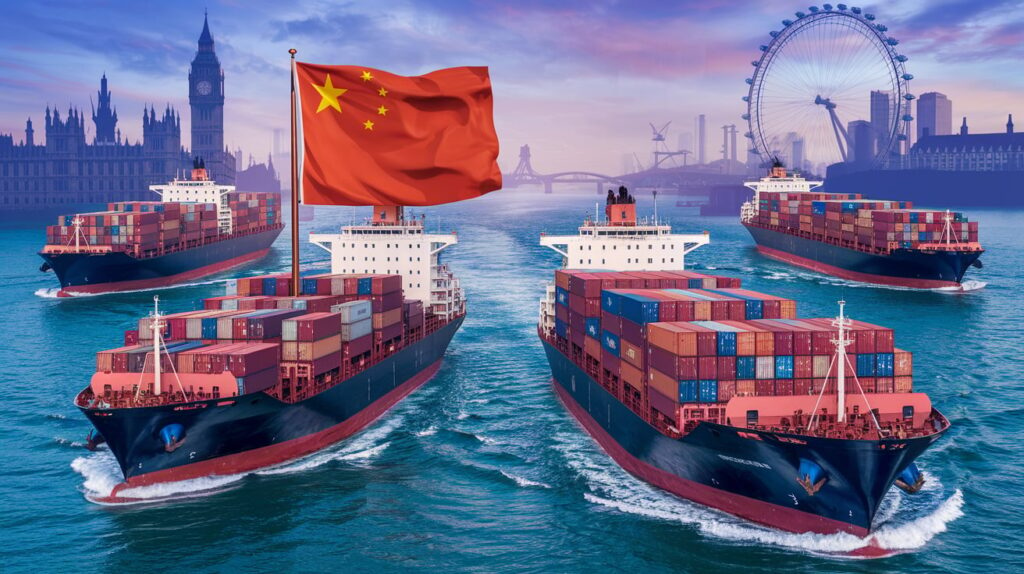
Understanding the Role of a Shipping Agent from China to the UK
A shipping agent acts as a representative for importers and exporters in the logistics industry. Their primary role is to facilitate the movement of goods between countries and ensure that all necessary processes are effectively managed. Shipping agents handle several crucial tasks, including coordinating with carriers, managing shipping documentation, and liaising with customs authorities. They serve as intermediaries between the shipper (exporter) and the consignee (importer), ensuring that cargo is transported smoothly from the point of origin to its destination.
The agents possess in-depth knowledge of shipping regulations, tariffs, and customs requirements, which is essential for navigating the complexities of international shipping. Their expertise is vital for ensuring compliance with both local and international laws, reducing the risk of delays or penalties associated with incorrect documentation or procedures.
Importance of a Reliable Shipping Agent in International Trade
The role of a reliable shipping agent cannot be overstated, particularly when importing goods from China to the UK. Here are several reasons why partnering with a dependable shipping agent is critical:
Expertise in Regulations: International trade involves navigating a multitude of regulations and compliance issues. A seasoned shipping agent possesses the necessary expertise to ensure that all customs and shipping regulations are adhered to, minimizing the risk of fines or delays.
Cost-Effectiveness: A proficient shipping agent is skilled in negotiating freight rates and terms, which can lead to significant savings for businesses. Their industry connections often enable them to secure better rates than what individual importers might achieve on their own.
Efficiency in Logistics Management: Effective shipping agents streamline the logistics process. They handle scheduling, tracking shipments, and addressing any potential issues that may arise during transit, allowing businesses to focus on their core operations.
Risk Management: With extensive experience, reliable shipping agents can identify potential risks associated with shipping routes, weather conditions, or customs issues, providing precautionary measures to mitigate these challenges.
Enhanced Customer Service: A good shipping agent prioritizes customer relations, providing timely updates and support throughout the shipping process. This level of service fosters trust and transparency, essential for long-term partnerships.
Door-to-Door Services: Many reputable shipping agents offer door-to-door shipping services, which simplify the import process by managing everything from pickup at the supplier’s facility to delivery at the buyer’s premises.
Key Shipping Methods from China to the UK
When it comes to shipping from China to the UK, various methods are available, each with its advantages and disadvantages. Understanding these methods is crucial for making informed decisions based on your business’s needs.
Air Freight from China to the UK
Air freight is one of the fastest shipping options available, making it ideal for urgent shipments. Key benefits of air freight include:
- Speed: Typically, air freight can deliver goods in as little as 3 to 7 days, depending on the specific service level.
- Reliability: Airlines have stringent schedules, which means fewer delays compared to other methods.
- Safety: Air freight is generally perceived as a safer option for valuable or fragile items.
However, air freight can be significantly more expensive than other shipping methods, and its capacity is often limited to lighter and smaller shipments.
Sea Freight from China to the UK
Sea freight is often the preferred method for shipping larger volumes of goods due to its cost-effectiveness. Here are some key points:
- Cost Efficiency: Typically, sea freight is the most economical option for bulk shipments, especially for non-perishable goods.
- Capacity: Shipping containers can accommodate large quantities, making it suitable for businesses with substantial inventory needs.
- Flexibility: Sea freight allows the transport of diverse products, from raw materials to finished goods.
The primary drawback is the longer transit times, which can range from 20 to 40 days, depending on the specific route and shipping lines used.
Rail Freight from China to the UK
Rail freight presents a middle ground between air and sea freight, particularly for shipments moving from China to Europe. Notable features include:
- Speed: Rail freight can deliver goods in approximately 15 to 20 days, faster than sea freight but slower than air freight.
- Eco-Friendly: This option tends to have a lower carbon footprint compared to air freight, making it an attractive choice for environmentally conscious businesses.
- Reliability: With fewer delays compared to sea freight, rail services are known for their punctuality.
However, rail freight might not be suitable for all types of cargo, especially oversized or excessively heavy items.
Express Shipping from China to the UK
Express shipping involves expedited services from carriers such as DHL, FedEx, or UPS, catering to urgent delivery needs. Key features include:
- Speed: Express shipping can deliver packages within 1 to 5 days, ideal for time-sensitive shipments.
- Convenience: Many express shipping providers offer comprehensive tracking and customer support, enhancing the shipping experience.
- Door-to-Door Service: Most express services provide door-to-door delivery, simplifying the logistics process for businesses.
The primary consideration for express shipping is the higher cost associated with the speed and convenience offered.
For businesses looking to efficiently import goods from China to the UK, partnering with a professional and reliable freight forwarder like Dantful International Logistics can ensure seamless management of the logistics process, offering tailored services that meet diverse shipping needs. With a strong focus on cost-effective, high-quality, and one-stop international logistics solutions, Dantful is well-positioned to support global traders in navigating the complexities of international shipping.
Read More:
- Shipping From China To Netherlands
- Shipping From China To Spain
- Shipping From China To Germany
- Shipping From China To France
- Shipping From China to Italy
- Shipping From China To Poland
- Shipping From China to United Kingdom
Choosing the Right Shipping Agent for Your Needs
Selecting an appropriate shipping agent is crucial for ensuring the efficient and effective transport of goods from China to the UK. The right partner can streamline your logistics, mitigate risks, and enhance your overall shipping experience.
Factors to Consider When Selecting a Shipping Agent
When evaluating potential shipping agents, certain key factors should be taken into account:
Experience and Expertise: Assess the agent’s experience in the freight forwarding industry, particularly their familiarity with shipping routes and regulations between China and the UK. A knowledgeable agent can navigate complexities, ensuring compliance and reducing delays.
Reputation and Reviews: Look for reviews and testimonials from previous clients. A reputable agent will have a track record of reliability, integrity, and satisfactory service. Websites like Trustpilot or industry-specific forums can provide insight into other customers’ experiences.
Range of Services: Consider whether the shipping agent offers comprehensive services, including customs clearance, insurance, and warehousing services. A one-stop solution can simplify logistics and facilitate smoother operations.
Communication and Responsiveness: Strong communication is essential in freight forwarding. Evaluate how quickly and effectively a shipping agent responds to inquiries. Clear lines of communication can prevent misunderstandings and facilitate timely updates on shipment status.
Technological Capabilities: Assess whether the agent utilizes modern technology such as tracking systems and online portals for managing shipments. This access to real-time information enhances transparency and allows for better planning.
Network and Partnerships: Strong relationships with carriers and freight networks can significantly affect shipping rates and service levels. A well-connected agent will have access to various shipping options and can leverage those relationships for better pricing and reliability.
Comparing Services: Air, Sea, and Rail Options
When selecting a shipping agent, it is essential to understand the various shipping methods they provide:
| Shipping Method | Advantages | Disadvantages |
|---|---|---|
| Air Freight | Fast delivery (3-7 days), reliable scheduling, lower risk of damage | Higher costs, limited capacity |
| Sea Freight | Cost-effective for bulk shipments, accommodates large volumes, flexible cargo types | Longer transit times (20-40 days), potential for delays due to weather or port congestion |
| Rail Freight | Moderate speed (15-20 days), lower carbon footprint, reliable | Limited capacity for oversized items, less availability compared to air and sea options |
| Express Shipping | Very fast delivery (1-5 days), comprehensive tracking and support | Highest costs among options, limited to smaller packages |
By comparing these services, you can identify which shipping method aligns best with your budget and delivery timelines, allowing you to communicate your needs effectively to the shipping agent.
Evaluating Costs and Pricing Structures
Understanding the cost structure of freight forwarding services is vital for effective budgeting and planning. Key elements to consider include:
Freight Rates: Shipping costs can vary significantly based on the shipping method, weight, and dimensions of the cargo. It’s essential to request detailed quotes from multiple agents to compare rates accurately.
Additional Fees: Be aware of potential additional charges, such as fuel surcharges, handling fees, and terminal fees. A comprehensive quote should detail all costs involved to avoid surprises during the shipping process.
Payment Terms: Evaluate the payment terms offered by the shipping agent, including deposits, payment upon delivery, and other options. Flexible payment terms can provide financial relief, particularly for smaller businesses.
Insurance Costs: Depending on the value of the goods being shipped, insurance is an important consideration. Understand the insurance options available and their associated costs, ensuring that your cargo is adequately protected during transit.
Long-Term Contracts vs. One-Time Shipping: If you anticipate regular shipments, inquire about long-term contracts, which may offer discounted rates. Conversely, for occasional shipments, ensure that the pricing structure is still competitive without long-term commitments.
Customs Clearance: Navigating Regulations and Duties
Navigating customs regulations and duties is a critical aspect of international shipping. A knowledgeable shipping agent can facilitate this process effectively.
Understanding Customs Procedures in the UK
Customs procedures for importing goods into the UK involve several key steps:
Documentation: Accurate and complete documentation is essential for customs clearance. This includes commercial invoices, packing lists, shipping labels, and any required import permits or licenses.
Duties and Taxes: Import duties and taxes in the UK are assessed based on the value of the goods, their classification under the UK Tariff, and any applicable trade agreements. Understanding these calculations is crucial for budgeting purposes.
Customs Declarations: The shipping agent typically prepares customs declarations on behalf of the importer, ensuring compliance with UK customs regulations. Failure to accurately declare goods can lead to fines or delays.
Post-Clearance Audits: UK customs may conduct post-clearance audits to verify compliance. It’s important to maintain accurate records of all transactions and shipping documentation for potential audits.
Importance of Customs Clearance Support from Your Shipping Agent
Having a shipping agent with expertise in customs clearance is paramount for several reasons:
Expert Guidance: A knowledgeable agent understands the intricacies of UK customs regulations and can provide guidance on compliance, minimizing the risk of errors.
Timely Clearance: With experienced professionals managing customs processes, shipments are more likely to clear customs efficiently, reducing delays and ensuring timely delivery.
Risk Mitigation: An agent familiar with customs regulations can help identify potential challenges and mitigate risks associated with non-compliance, protecting your business from penalties and disruptions.
Streamlined Processes: By leveraging their industry relationships and technology, agents can streamline customs clearance, providing a smoother shipping experience overall.
Engaging a competent shipping agent for your import needs not only enhances your logistics efficiency but also provides peace of mind regarding compliance and risk management. By selecting the right partner, you can focus on growing your business while ensuring your goods are shipped safely and efficiently from China to the UK. For tailored logistics solutions, consider working with Dantful International Logistics, a reliable partner dedicated to optimizing your international shipping experience.
Benefits of Using a Professional Shipping Agent
In the complex landscape of international trade, utilizing a professional shipping agent can yield significant advantages for businesses importing goods from China to the UK. These benefits extend far beyond mere transportation, impacting various aspects of logistics management.
Time Savings and Operational Efficiency
A primary benefit of engaging a professional shipping agent is the substantial time savings they provide. Here’s how:
Streamlined Processes: Shipping agents are adept at coordinating each step of the shipping process. They manage the logistics of scheduling, documentation, and communications with carriers and customs authorities, ensuring that shipments are processed efficiently. This expertise reduces the time required for businesses to manage shipments themselves, allowing them to focus on core operations.
Faster Customs Clearance: Experienced agents possess the knowledge to navigate customs regulations effectively. By preparing accurate documentation and managing customs declarations, they help expedite the clearance process, minimizing delays associated with customs issues. This capability is particularly vital in fast-paced markets where timely deliveries can dictate competitive advantage.
Reduced Administrative Burden: By entrusting logistics and shipping responsibilities to a professional agent, companies can lighten their administrative load. Shipping agents handle intricate tasks such as invoicing, tracking, and paperwork, freeing up internal resources for other important functions.
Improved Shipping Schedules: With a thorough understanding of shipping routes and times, agents can optimize shipping schedules to ensure timely arrivals. This efficiency not only enhances customer satisfaction but also strengthens business relationships.
Risk Management and Insurance Options
The complexities of international shipping bring inherent risks. A professional shipping agent can significantly mitigate these risks through several means:
Expert Risk Assessment: Shipping agents conduct thorough evaluations of potential risks associated with shipping routes, including geopolitical factors, weather conditions, and regulatory changes. Their insight allows businesses to anticipate challenges and implement proactive measures.
Customs Compliance: Non-compliance with customs regulations can result in severe penalties and shipment delays. A knowledgeable shipping agent ensures that all customs procedures are followed meticulously, reducing the risk of unexpected fines or seizures.
Insurance Coverage: Professional shipping agents often offer a variety of insurance options to protect cargo against damage, theft, and loss during transit. Understanding the specifics of insurance policies and selecting appropriate coverage levels is crucial for safeguarding valuable shipments. Agents can provide guidance on the right insurance solutions tailored to individual business needs.
Contingency Planning: In the event of logistics disruptions, having a shipping agent is invaluable. They develop contingency plans to address unforeseen issues, such as rerouting shipments or adjusting schedules to mitigate losses. Their established relationships with carriers can also expedite alternative arrangements.
Access to Global Networks and Resources
A professional shipping agent provides access to extensive global networks and resources, enhancing logistical capabilities:
Carrier Relationships: Shipping agents maintain strong relationships with various carriers, including airlines and shipping lines. This network allows them to negotiate competitive rates and secure capacity, ensuring that businesses receive the best possible shipping options.
Comprehensive Service Offerings: Many shipping agents offer a full suite of services beyond transportation, such as warehouse services, customs clearance, and insurance services. This one-stop-shop approach simplifies logistics management and enhances overall operational efficiency.
Market Insights: Established shipping agents possess valuable insights into market trends, shipping regulations, and industry best practices. This knowledge enables businesses to make informed decisions and adapt to changes in the international trade landscape.
Scalability: As businesses grow and their shipping needs evolve, a professional shipping agent can easily adapt to increased volumes and more complex logistics requirements. Their expertise ensures that scaling operations does not compromise efficiency or quality.
For businesses looking to enhance their shipping procedures and gain a competitive edge, partnering with a professional shipping agent like Dantful International Logistics is a strategic move. With a focus on cost-effective solutions, high-quality service, and access to a global network, Dantful stands ready to support your logistics needs as you navigate the complexities of international trade.

Young Chiu is a seasoned logistics expert with over 15 years of experience in international freight forwarding and supply chain management. As CEO of Dantful International Logistics, Young is dedicated to providing valuable insights and practical advice to businesses navigating the complexities of global shipping.











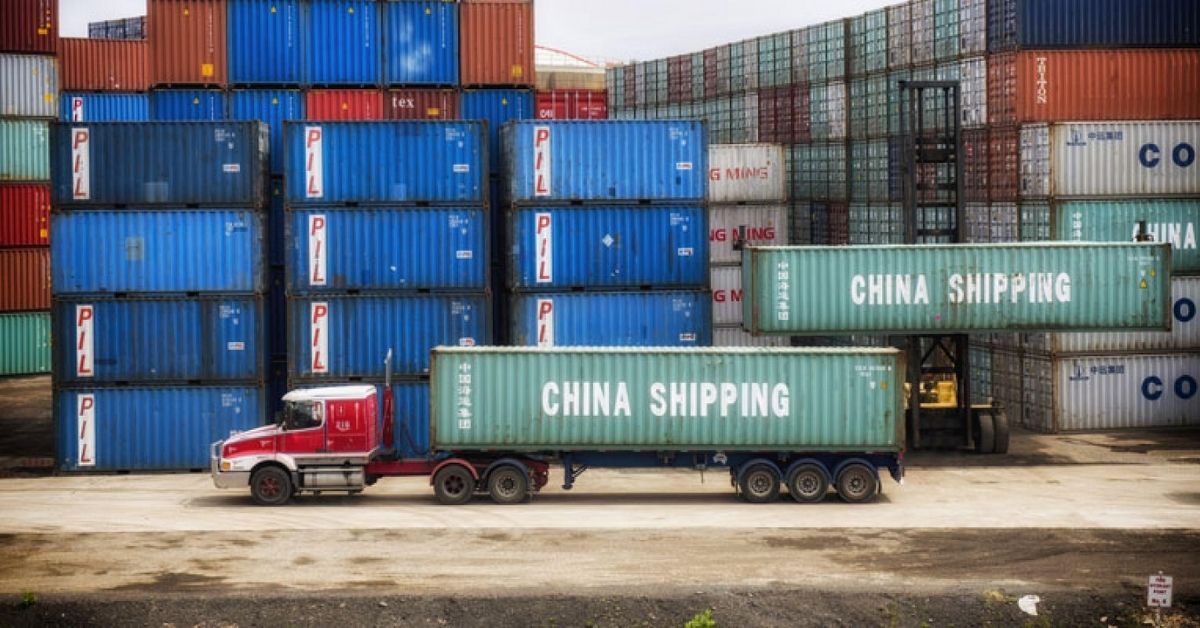
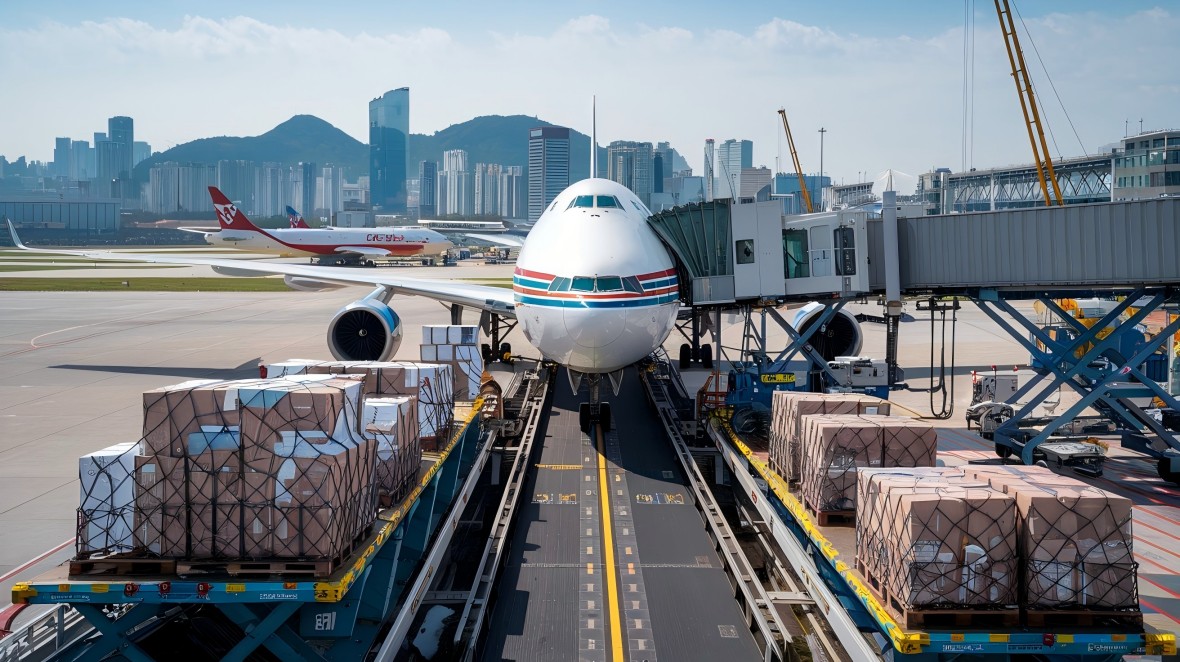
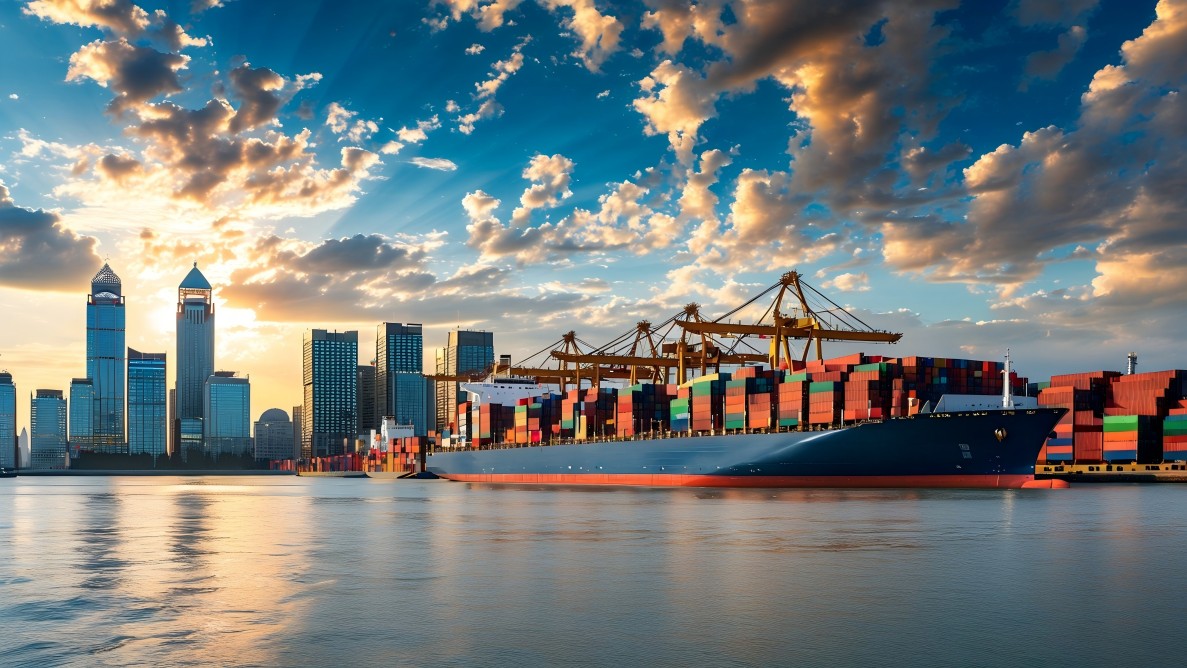
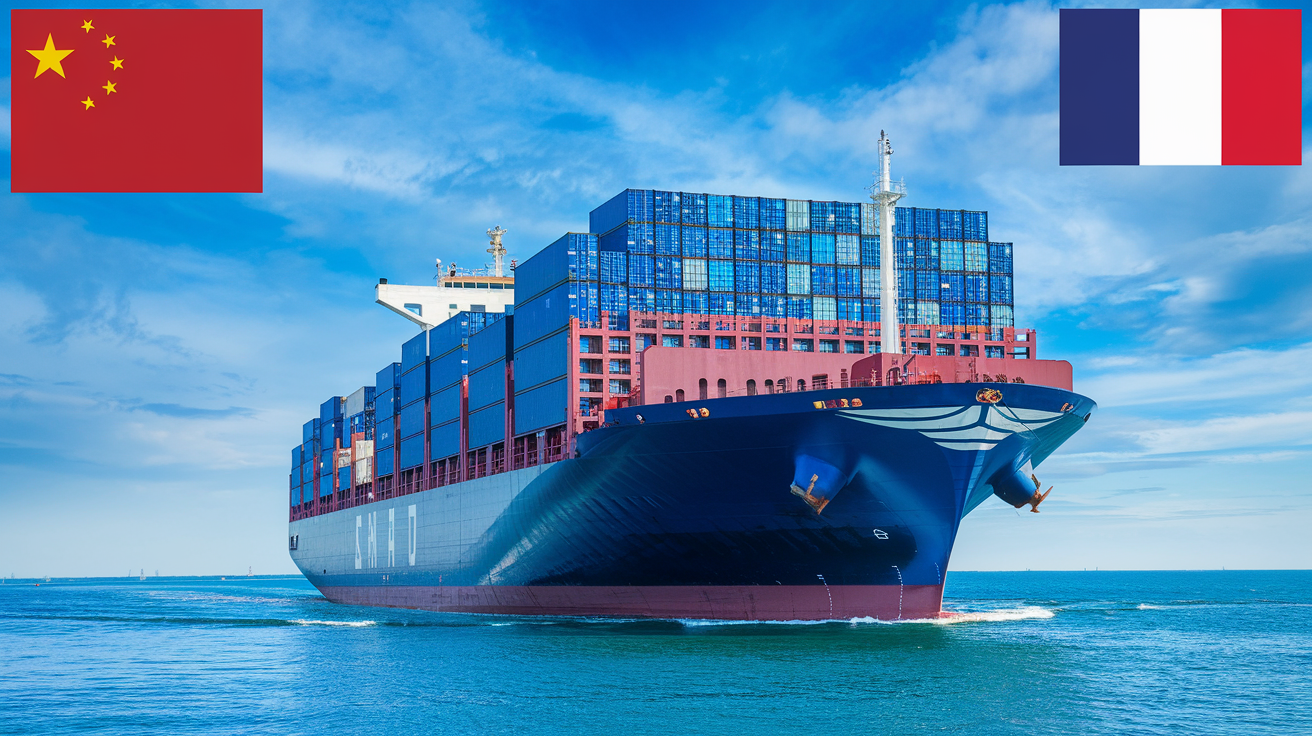






 Afrikaans
Afrikaans Shqip
Shqip አማርኛ
አማርኛ العربية
العربية Հայերեն
Հայերեն Azərbaycan dili
Azərbaycan dili Euskara
Euskara Беларуская мова
Беларуская мова বাংলা
বাংলা Bosanski
Bosanski Български
Български Català
Català Cebuano
Cebuano Chichewa
Chichewa 简体中文
简体中文 繁體中文
繁體中文 Corsu
Corsu Hrvatski
Hrvatski Čeština
Čeština Dansk
Dansk Nederlands
Nederlands English
English Esperanto
Esperanto Eesti
Eesti Filipino
Filipino Suomi
Suomi Français
Français Galego
Galego ქართული
ქართული Deutsch
Deutsch Ελληνικά
Ελληνικά Kreyol ayisyen
Kreyol ayisyen Harshen Hausa
Harshen Hausa Ōlelo Hawaiʻi
Ōlelo Hawaiʻi עִבְרִית
עִבְרִית हिन्दी
हिन्दी Hmong
Hmong Magyar
Magyar Íslenska
Íslenska Igbo
Igbo Bahasa Indonesia
Bahasa Indonesia Gaeilge
Gaeilge Italiano
Italiano 日本語
日本語 Basa Jawa
Basa Jawa ಕನ್ನಡ
ಕನ್ನಡ Қазақ тілі
Қазақ тілі ភាសាខ្មែរ
ភាសាខ្មែរ 한국어
한국어 كوردی
كوردی Кыргызча
Кыргызча ພາສາລາວ
ພາສາລາວ Latin
Latin Latviešu valoda
Latviešu valoda Lietuvių kalba
Lietuvių kalba Lëtzebuergesch
Lëtzebuergesch Македонски јазик
Македонски јазик Malagasy
Malagasy Bahasa Melayu
Bahasa Melayu മലയാളം
മലയാളം Maltese
Maltese Te Reo Māori
Te Reo Māori मराठी
मराठी Монгол
Монгол ဗမာစာ
ဗမာစာ नेपाली
नेपाली Norsk bokmål
Norsk bokmål پښتو
پښتو فارسی
فارسی Polski
Polski Português
Português ਪੰਜਾਬੀ
ਪੰਜਾਬੀ Română
Română Русский
Русский Samoan
Samoan Gàidhlig
Gàidhlig Српски језик
Српски језик Sesotho
Sesotho Shona
Shona سنڌي
سنڌي සිංහල
සිංහල Slovenčina
Slovenčina Slovenščina
Slovenščina Afsoomaali
Afsoomaali Español
Español Basa Sunda
Basa Sunda Kiswahili
Kiswahili Svenska
Svenska Тоҷикӣ
Тоҷикӣ தமிழ்
தமிழ் తెలుగు
తెలుగు ไทย
ไทย Türkçe
Türkçe Українська
Українська اردو
اردو O‘zbekcha
O‘zbekcha Tiếng Việt
Tiếng Việt Cymraeg
Cymraeg יידיש
יידיש Yorùbá
Yorùbá Zulu
Zulu